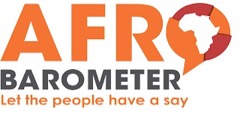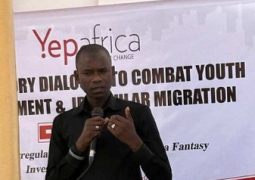
Afrobarometer survey revealed health, management of the economy, water supply, education and unemployment as the priorities of most Gambia youth.
Of the young respondents between 18 and 35 years, 41% prioritised health, 37% prioritised management of the economy, 27% preferred water supply and 27% chose education, and unemployment concerned only 18% of the youth.
Health and management of the economy remain the most important issues that Gambian youth want the government to address; according dispatch No. 521 of the firm dated 25th May 2022.
It showed that the age category are more likely to priorities education and infrastructure/roads, instead of unemployment, than the elders.
Health and management of the economy are the most important problems that Gambian youth (aged 18-35 years) want their government to address.
They are more likely than their elders to prioritise education and infrastructure/roads, but not unemployment.
On average, Gambian youth have more education than their elders. Almost six in 10 young Gambians (58%) have secondary or post-secondary schooling, compared to about half as many in the 36-55 (32%) and over-55 (28%) age groups.
But they are also more likely to be unemployed: A quarter (25%) of young Gambians are looking for a job, compared to 21% of middle-aged and 16% of older citizens.
Only a minority of young Gambians say the government is doing a good job of meeting the needs of youth (22%) and addressing their priorities for government action.
Almost six in 10 Gambians (57%) say they would be willing to pay higher taxes to fund programmes to help the youth.
If the government could increase its spending to help young people, job creation (cited by 46% of respondents) would be Gambians’ highest priority for additional investment.
Majority of Gambians say that in order for the country to do well, we should listen to the wisdom of our elders (53%) rather than to fresh ideas from young people (36%).
This view is shared widely across all age brackets – even among young adults (51%).
Young Gambians are less likely than their elders to engage in political and civic activities, including voting, contacting leaders, attending community meetings, and joining others to raise an issue.
The findings suggested that young Gambians are not taking full advantage of the political and civic avenues in the Gambia to make their voices and their priorities heard.
It concluded that a few Gambians believe their government is doing enough to develop one of the country’s most important resources – its youth; while a majority of citizens favour greater investment in programmes targeting young people, even if it means paying higher taxes.
Afrobarometer is a pan-African, nonpartisan survey research network that provides reliable data on African experiences and evaluations of democracy, governance, and quality of life. Eight rounds of surveys have been completed in up to 39 countries since 1999.
Round 8 surveys (2019/2021) cover 34 countries. Afrobarometer conducts face-to-face interviews in the language of the respondent’s choice.
The Afrobarometer team in the Gambia is led by the Center for Policy, Research and Strategic Studies (CepRass), interviewed a nationally representative, random, stratified probability sample of 1,200 Gambian adults in January and February 2021.
A sample of this size yields country-level results with a margin of error of +/-3 percentage points at a 95% confidence level.
Afrobarometer





